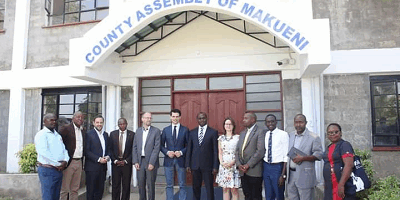1. Introduction
Kenya’s digital space has grown into a vibrant platform for innovation, civic expression, and governance accountability. As citizens, our voices, stories, and innovations increasingly live online. Yet, laws that regulate cyberspace must walk a delicate path — protecting the nation without silencing its people.
The Computer Misuse and Cybercrimes (Amendment) Act 2024 seeks to curb online crime, but some of its clauses raise serious concerns when tested against the Constitution of Kenya, 2010, especially on freedom of expression, privacy, and fair limitation of rights.
This reflection by Partnership for Transformational Development (PTD) Kenya, under its Rule of Law and Good Governance program, highlights the importance of aligning all legislation with our constitutional values.
2. The Promise of the 2010 Constitution
Our Constitution guarantees:
-
Article 31 – Privacy: Every person has the right to privacy of their information and communications.
-
Article 33 – Freedom of Expression: Every person has the right to seek, receive, or impart ideas and information.
-
Article 34 – Freedom of the Media: The State shall not penalize anyone for expressing an opinion or publishing information.
-
Article 24 – Limitation of Rights: Any limitation must be clear, reasonable, and justifiable in a democratic society.
These articles form the moral compass for digital regulation — ensuring laws fight crime but not citizens’ voices.
3. Key Sections of Concern in the 2024 Amendment
| Amended Section | Proposed Power or Restriction | Potential Constitutional Conflict |
|---|---|---|
| Section 6 – Powers of National Computer and Cybercrimes Coordination Committee (NC4) | Allows NC4 to seek court orders to block websites or apps used for “illegal or extreme” content. | Risk of violating Article 33 & 34 – vague terms like “extreme” could silence dissent or journalism. |
| Section 27 – Cyber Harassment | Introduces penalties up to KSh 20 million or 10 years imprisonment for online harassment or “messages likely to cause suicide.” | While protecting victims is vital, the wording is too broad, risking violation of Article 33 (expression) and Article 24 (proportionality). |
| Section 2 – Expanded Definition of “Access” | Adds “through a program or device,” widening the scope of what counts as unauthorised access. | May unintentionally criminalise legitimate digital activity, conflicting with Article 31 (privacy) and Article 50 (fair hearing). |
| Section 5 – Surveillance and Interception Provisions (from 2018 Act retained) | Authorises investigation agencies to intercept communications. | May infringe Article 31(d) if used without strict court oversight or due process. |
| Section 36 – False Publications / Disinformation (if reactivated) | Criminalises sharing “false or misleading” information online. | Declared unconstitutional in COFEK v. AG (2022) for violating freedom of expression; reintroduction would contradict judicial precedent and Article 33. |
4. Why It Matters
When laws overreach into private communication or impose heavy penalties for online speech, they chill civic participation, weaken accountability, and discourage digital innovation.
Cybercrime is real — from fraud to data theft — but solutions must respect the rule of law and constitutional safeguards. A free and secure digital Kenya requires both protection from crime and protection of rights.
5. A Call for Constitutional Vigilance
PTD Kenya urges citizens, civil society, and lawmakers to:
-
Engage in public education on digital rights and responsibilities.
-
Scrutinize all future amendments to ensure they meet the test of Article 24.
-
Advocate for oversight mechanisms on digital surveillance and content blocking.
-
Defend civic space — because a democratic society thrives when citizens can question, express, and innovate without fear.
6. Conclusion
True cybersecurity should protect both data and democracy.
As Kenya advances in digital governance, every policy and law must echo the spirit of 2010 — sovereignty of the people, transparency of government, and protection of rights.
At PTD Kenya, we believe in a nation where technology empowers, not intimidates; where the Constitution remains the firewall of our freedom.










